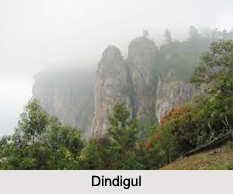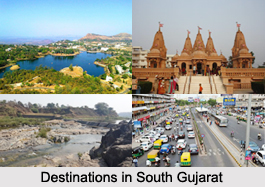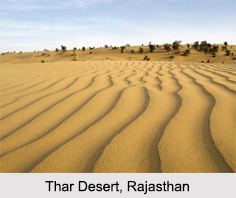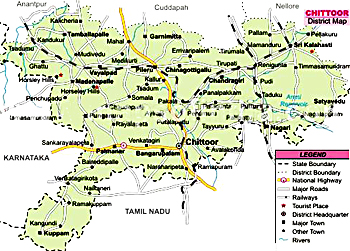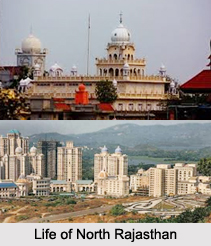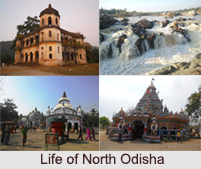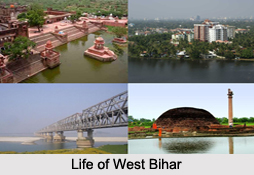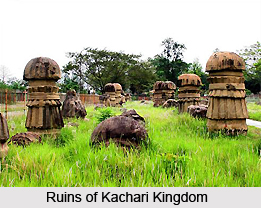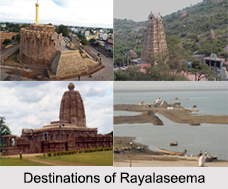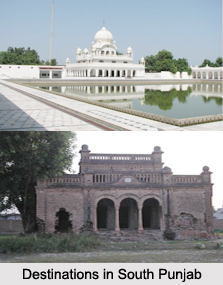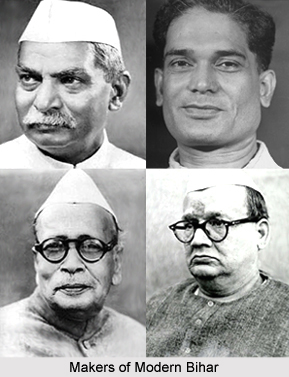 A biographical study of the makers of modern Bihar will help in understanding the contemporary history. They brought about a renaissance and helped the growth of cultural outlook. They played a leading part in the formation of our modern history.
A biographical study of the makers of modern Bihar will help in understanding the contemporary history. They brought about a renaissance and helped the growth of cultural outlook. They played a leading part in the formation of our modern history.
Khuda Baksh
Khuda Baksh (1842-1908) was born in Chhapra. He began to practice as a lawyer at Patna in 1868, went to Hyderabad in 1898 as the Chief Justice and thereafter returned to Patna after retirement. He served as the first Vice-Chairman of the Patna Municipality and of Patna District Board. He founded the world famous Khudabaksh Library and spent Eighty thousand for the library building.
Bisheshwar Singh and Shaligram Singh
Bisheshwar Singh and Shaligram Singh (1849-99 and 1852-1907) have been famous for their philanthropic actions. Their father had helped the British Government in the mutiny of 1857 and he was thus rewarded a certificate of loyalty signed by Queen Victoria. Shaligram Singh was a good lawyer and was a member of the Bengal Legislative Council. These two brothers founded the Bihar National College and thus accelerated the cause of learning. Shaligram Singh was a great educationist and an active member of the Senate of University of Calcutta.
Bisheshwar Singh was an acknowledged leader of Biharis and a spirited public man. Maharaj Lakshmeshwar Singh of Darbhanga District was a man of liberal ideas. He had strength of character. He took an active part in the famous Bengal Tenancy Act of 1885. There is a museum called Maharaja Lakshmishwar Singh Museum is situated in Darbhanga.
Maulana Mazharul Haque
Maulana Mazharul Haque (1866-1940) was an inhabitant of Patna district. After finishing his educational career in India and England, he was appointed a Munsif of Awadh. That did not suit his temperament He resigned and joined the bar at Ghapraf where he soon made his mark. He was elected Vice-Chair man of the Municipality and there he earned his name as a public man. He was a first rate patriot and was opposed to separate electorate. He was the greatest apostle of Hindu-Muslim unity. In 1912, he was the Chairman of the Reception committee of the Patna session of the Indian National Congress. Dr. Sachchida Nand Sinha was the Secretary of that Committee. In 1916 the Congress sent a deputation to London and he was elected to serve on it. In 1917 he supported Mahatma Gandhi in his Champaran campaign and in 1921 he joined the Congress movement; He started a weekly called the "Motherland. He acted as the Chairman of Saran District Board for three years. He is the founder of the Sadakat Ashram which is today the Centre of Bihar Congress and at the same times its spiritual capital. He was one of the founders of the Bihar Congress. In him we lost a towering personality and a man of a type above average which is found today in our country.
Dr. K. P. Jayswal
Dr. K. P. Jayswal (1871-1937) began his practice at the Calcutta High Court and later settled in Patna. By his vast learning and scholarship, he made Bihar the Centre of Oriental Research and Ideological studies. Bihar Research Society Journal acquired its international fame since its inception and he was its founder editor. He had the true spirit of a scholar. His "Hindu Polity" had created a great stir in the scholarly-world of India. It inspired many of our patriots.
Dr. Sachidanand Sinha
Dr. Sachidanand Sinha (November 10, 1871 to March 6, 1950) was one of the leading personalities of India. It was due to his struggle that Bihar could be separated from Bengal. He was thus aptly called the maker of Modern Bihar. He began his career as a lawyer. He entered the Supreme Legislative Council and as a legislator he won a great respect. He was appointed the first President of the Bihar and Orissa Legislative Council. He was the first Indian Finance Member and was in charge of Jails. He was a famous Journalist and was the founder-editor of "Hindustan Review." During his Vice-Chancellorship, there was responsible for all round progress of the Patna University. He was called the grand old man of Bihar and served as the first President of the Indian Constituent Assembly.
Dr. Rajendra Prasad
Dr. Rajendra Prasad, after finishing his educational career, began to practice in the Calcutta High Court in 1911 and came to Patna in 1916. He was instilled with the spirit of service to the people. In 1902, he started the Bihari Club and later on organized the Bihar students` movement. Its first session was held in the Patna College in 1906. This Bihar Students` Association was a powerful movement for about twenty years. He is interested with the growth of education. He is one of the founders of the Patna University and served as the member of the Senate and Syndicate till 1920. He was joined by Gandhiji when he began his movement in Champaran and Kheda Satyagraha. He was appointed the Vice-Chancellor the National University, known as Bihar Vidyapith. Rajendra Prasad committed his life for the enhancement of the social condition of the masses. He established the Bihar Central Relief Committee after the great earthquake of 1934. After independence he was appointed the first President of Indian Republic on January 26, 1950. He presided over the Constituent Assembly.
Besides, there are others who have done their best for the uplift of our people. Late Babu Dip Narain Singh of Bhagalpur was one of the towering personalities who contributed much towards our national movement and dedicated himself to the cause of social aid political regeneration of our people. Babu Deep Narain Singh, Raja Krityanand Singh of Banaili, and Babu Langat Singh of Muzaffarpur, have immortalized their name in the history by their generous gift towards the cause of higher education. It is to their credit that our cultural regeneration could be possible and that paved the way for our political regeneration. The name of the "Lalls" of Gaya the two "Imams" of Patna, Sir Sultan Ahmed, Jayaprakash Narayan, Ramcharitra Singh, Dharnidha Prasad, the famous geologist Pramath Nath Basu are worth mentioning. In the thirties and onward in our century, Drs. Shreekrishna Sinha and Anugrah Narain Sinha have distinguished themselves by their selfless service to the cause of our people and as efficient administrators.







